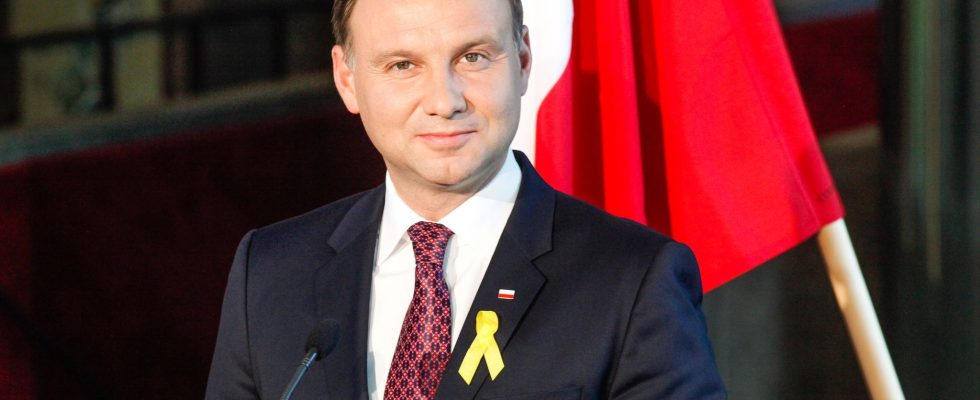The Polish government announced this Thursday, October 5, that it will put its “firm veto” on the European Union’s migration reform, denouncing the “diktat of Brussels and Berlin” regarding the text, on the eve of an EU summit and 10 days before the legislative elections in Poland.
The ambassadors of EU countries agreed on Wednesday on a key text of the reform of European migration policy just before the summit of the Twenty-Seven in Granada, Austria, Slovakia and the Czech Republic agreed abstaining, while Warsaw and Budapest opposed it.
“Why should we submit to the diktat of Brussels and Berlin?” asked the head of the Polish nationalist populist government, Mateusz Morawiecki, before the European summit which opens on Friday in Spain. “I will strongly veto it,” he repeated several times, during a joint televised statement with President Andrzej Duda, who represents the same political side.
Controversial referendum in Poland
The two men called on Poles to participate in a referendum, devoted among other things to the question of migrants from the Middle East and Africa, organized with the legislative elections on October 15. Deemed controversial, the referendum risks being boycotted by part of the population.
The regulation in question, which will still have to be the subject of negotiations with the European Parliament, is intended to organize a response in the event of a massive influx of migrants into an EU state, such as at the time of the refugee crisis in 2015-2016. In particular, it provides for compulsory solidarity between member states and a possible extension of the duration of detention of migrants at the bloc’s external borders.
The text should allow, in the event of a “massive” and “exceptional” influx, the establishment of an exceptional regime that is less protective for asylum seekers than the usual procedures. Its implementation must, however, be subject to authorization from the Member States. It also provides for a rapid triggering of solidarity mechanisms towards the Member State faced with this influx, in particular in the form of relocation of asylum seekers or a financial contribution. The objective stated by Brussels is to ratify this reform by the European elections next June.
